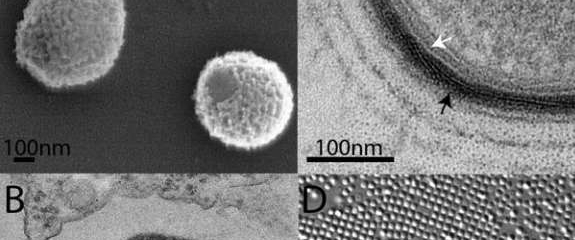Frankenvirus emerges from Siberia's frozen wasteland

Scientists said they will reanimate a 30,000-year-old giant virus unearthed in the frozen wastelands of Siberia, and warned climate change may awaken dangerous microscopic pathogens.
Reporting this week in PNAS, the flagship journal of the US National Academy of Sciences, French researchers announced the discovery of Mollivirus sibericum, the fourth type of pre-historic virus found since 2003—and the second by this team.
Before waking it up, researchers will have to verify that the bug cannot cause animal or human disease.
To qualify as a "giant", a virus has to be longer than half a micron, a thousandth of a millimetre (0.00002 of an inch).
Mollivirus sibericum – "soft virus from Siberia" – comes in at 0.6 microns, and was found in the permafrost of northeastern Russia.
Climate change is warming the Arctic and sub-Arctic regions at more than twice the global average, which means that permafrost is not so permanent any more.
"A few viral particles that are still infectious may be enough, in the presence of a vulnerable host, to revive potentially pathogenic viruses," one of the lead researchers, Jean-Michel Claverie, told AFP.


